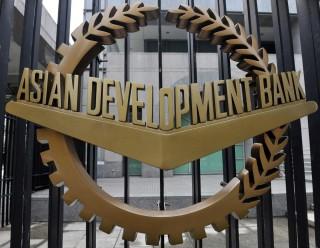BISHKEK (TCA) — This week, the local media reported that the State Financial Intelligence Service (FIS) of Kyrgyzstan requested all commercial banks of the country to provide data on customers’ accounts and cells.
On December 18, the 24.kg news agency posted a letter to commercial banks, dated December 10 and signed by FIS Chairman Gulamjan Anarbaev. The letter stated that in line with the law “On Counteracting the Financing of Terrorist Activities and Legalization (Laundering) of Criminal Proceeds”, all commercial banks should provide data on their customers’ accounts and cells. The deadline was December 17, but none of the banks has provided this information so far.
The Union of Banks of Kyrgyzstan was the first one to respond.
The head of the Union of Banks, Anvar Abdraev, told the media that, having discussed the situation, leaders and lawyers of the banks concluded that this requirement is contrary to the Constitution and legislation of Kyrgyzstan, and would negatively affects the image of the country’s banking system and the transition to a system of cashless payments. The FIS actions are illegal and harmful to the investment attractiveness of Kyrgyzstan, the Union of Banks concluded.
Officials’ opinion
All information on bank cells and accounts of citizens is an integral part of bank secrecy and should be protected. It can be disclosed only by a court decision or with bank customers’ own consent, Chairman of the National Bank of Kyrgyzstan Tolkunbek Abdygulov told 24.kg news agency on December 20. Decrease in public confidence in the banking system may lead to an outflow of deposits from commercial banks, he added.
Trust in the banking system has been forming for decades. The banking sector is quite sensitive and vulnerable to all sorts of information, Abdygulov said.
Violation of banking secrecy can cause as much damage to the economy as corruption, the Economy Ministry stated on its website, commenting the FIS actions. Such requirements are already affecting the investment climate in the country and industries sensitive to changes in the financial sector, the ministry said.
The disclosure of banking information should be carried out in accordance with the law, if there are relevant criminal cases and a court decision.
If this measure is aimed at eradicating corruption among public servants, then amendments to the relevant laws should be made, the Economy Ministry stated.
At the same time, Economy Minister Oleg Pankratov agreed to provide information about his bank accounts and cells for the entire period of his work in the public service.
Lawyers see many risks
In accordance with the law, the Financial Intelligence Service is charged with collecting and storing reports on suspicious financial transactions for money laundering, and the FIS has the right to request information and documents, including banking, commercial or other secrets, said the Adilet Legal Clinic headed by Cholpon Jakupova, a well-known lawyer, human rights activist and ex-MP.
However, in this particular case, the FIS has clearly gone beyond its authority.
First, according to Article 9 of the Law “On Counteracting the Financing of Terrorist Activities and Legalization (Laundering) of Criminal Proceeds”, the procedure for providing information and documents to the FIS shall be approved by the Government. However, the FIS required information from banks according to Form No. 3 approved by its own order.
Second, Article 131 of the Law outlines the requirements for a request for the provision of information constituting banking secrecy. The request should be related to a specific person. But in this case, the FIS requires total information related to all individuals without any reason.
Third, the FIS refers to the OECD’s (Organisation for Economic Co-operation and Development) 43rd recommendation. However, this recommendation does not mention bank cells. In fact, the FIS has gone beyond the recommendation and, arbitrarily interpreting, uses it for its own purposes, Adilet said.
Besides distrust towards the banking system of Kyrgyzstan, there will also be a risk of using banking information for personal gain by law enforcement agencies including pressure, blackmail and extortion against citizens and businesspeople who use bank accounts and cells, the lawyers concluded.
Bill approved hastily
The Financial Intelligence Service has authority over its initiative, MP Dastan Bekeshev believes. “Unfortunately, the parliament endowed it with such a right,” he told VB.KG news agency.
When MPs discussed this bill in June, its authors assured that data on bank accounts will be requested only for those who are at risk, arrested on charges of illegal enrichment. But the words are gone with the deeds, the MP concluded.
The law provides for the creation of a list of high-risk groups, individuals and countries. All banks, pawnshops, realtors, exchange bureaus, NPOs, individuals, and legal entities that make financial transactions with the listed ones should immediately report to the Financial Intelligence Service.
The FIS asked the MPs to approve the bill in an extraordinary order, explaining the risk for the country to be included in the Financial Action Task Force (FATF) gray list.
Financial Action Task Force is an inter-governmental body established in 1989 to combat money laundering and terror financing. As of 2018, there are 37 members including the European Commission and the Gulf Cooperation Council.
FATF has two types of lists — the black list and the grey list. Black list is given to countries that FATF considers as uncooperative “tax havens” (offshore financial centers). These countries are known as Non-Cooperative Countries or Territories (NCCTs).
Grey list is a warning given to a country that it might be included in the black list (just like a yellow card in a soccer match). Countries on the grey list face problems with getting loans and may suffer from economic sanctions.
After quick discussion, the Kyrgyz Parliament almost unanimously approved the bill on June 28, 2018. Only three MPs opposed, including Bekeshev.
Not to get back into the FATF grey list
“We want to get background information on the owners of banking cells and accounts to create a centralized database, but not to carry out any unlawful actions,” Chairman of the State Financial Intelligence Service Gulamjan Anarbayev said at a press conference in Bishkek on December 21.
The FIS did not request the information on the amount of deposits and the contents of depositors’ cells from commercial banks, he said. The FIS will require full information about the financial transactions if there is a suspicion that an entity or a person is engaged in money laundering or financing of terrorist organizations, or in corruption, Anarbayev added.
As a member of the Eurasian Group on Combating Money Laundering and Financing of Terrorism (EAG), Kyrgyzstan is obliged to comply with its standards. The EAG is intensively monitoring Kyrgyzstan, with only one year given to improve the situation, the FIS said.
Kyrgyzstan is also a party to the UN Convention against Corruption and should have a fast account tracking mechanism. Financial crimes occur mostly with the use of financial institutions, and it is difficult to track them quickly, the FIS said.
To create a centralized register, the FIS approved the form #3 and sent requests to banks to fill it, he added. For individuals, it is a full name, identification number, and account or cell number. For legal entities, the banks should provide information on the names and TIN (taxpayer identification number).
According to the FIS, the most important task for Kyrgyzstan is not to get back into the FATF sanctions list. From 2012 to 2014, the country was on the FATF gray list.
The FIS acknowledged that there is a conflict in the law regarding the provision of data by commercial banks to the State Financial Intelligence Service. In the near future, the FIS intends to discuss the issue with the National Bank of Kyrgyzstan and commercial banks.









